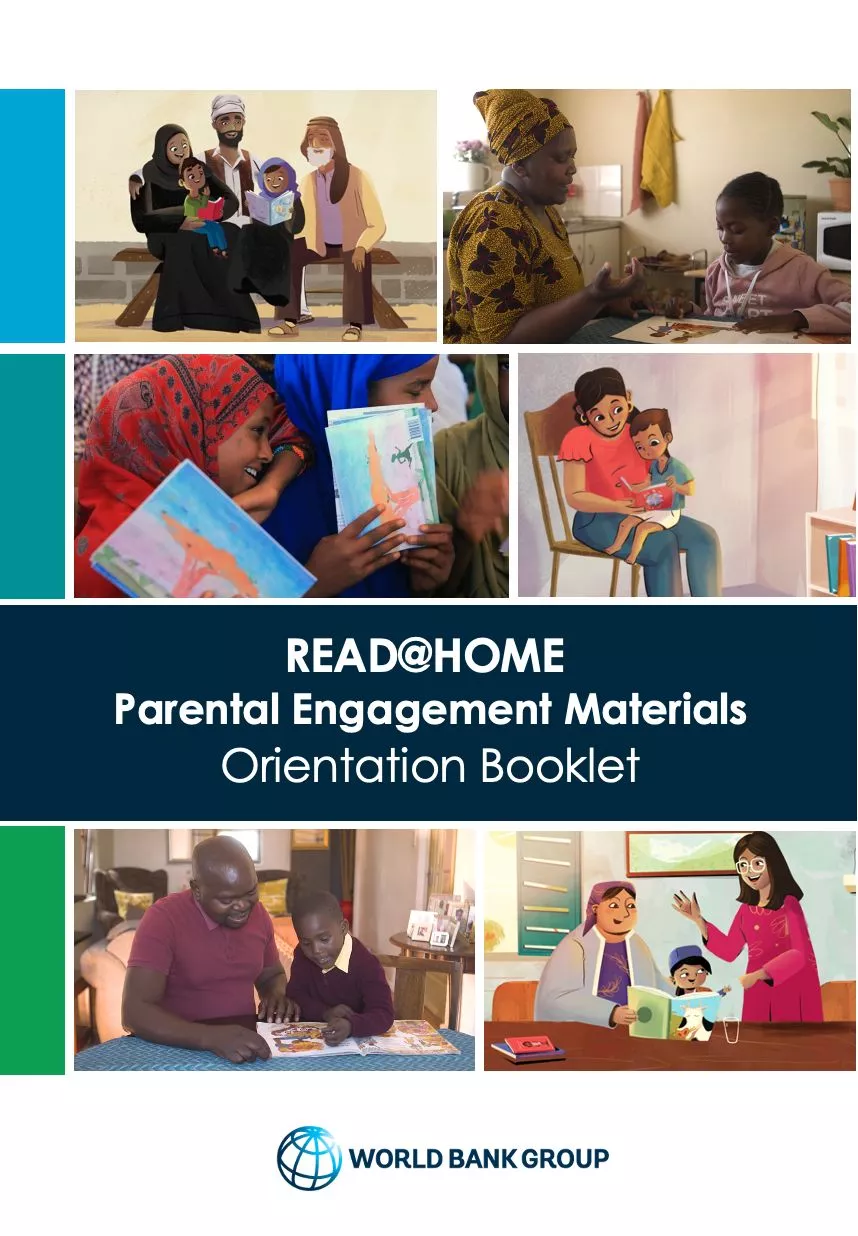The purpose of this study is to explore the status of the creation, use and/or management of open education resources (OER) in Kenya. OER, which to a large extent depend on access to Information Communication Technology (ICT), are seen by proponents as offerring certain opportunities to improve access to and quality of education.
Search the site
The Early Grade Reading Assessment (EGRA) Toolkit is intended for use by Ministry or Department of Education staff, donor staff, practitioners, and professionals in the field of education development. The document, in 12 sections, seeks to summarize a large body of research in an accessible manner.
Quality education should be delivered in the language spoken at home. However, this minimum standard is not met for hundreds of millions, limiting their ability to develop foundations for learning. By one estimate, as much as 40% of the global population does not have access to an education in a language they speak or understand.
National language policy mandates use of the language of the catchment area as the medium of instruction in Grades 1 to 3; in practice, however, English is used extensively as the medium of instruction even in Grade 1 classrooms. The national education agendas are motivated by economic progress and social advantage.
This report assessed school- and community-based reading. The Stanford-led team conducted a randomized control trial of a literacy intervention in Rwanda to determine whether programs aimed at families and communities had an impact on children's reading --above and beyond-- the traditional approach of training teachers.
This study was conducted as part of the OER for Skills Development project of Commonwealth of Learning (COL), supported by The William and Flora Hewlett Foundation. The objective of the study was to collect baseline data from Commonwealth institutions with respect to the development, use and reuse of OER; the availability of support; and challenges faced in fostering the use of OER.
Open Educational Resources (OER) offer a powerful means of expanding the reach and the effectiveness of education worldwide. For this reason, COL and UNESCO co-organised the World OER Congress in 2012 in Paris, which resulted in the OER Paris Declaration: a statement urging governments around the world to release, as OER, all teaching, learning and research materials developed with public funds.
The language environment in the Eastern and Southern Region of Africa is rich and dynamic. Many African languages, including Amharic, Kirundi, Swahili, isiZulu, Kinyarwanda, Chichewa, Luganda, Kikuyu, Malagasy, Oromo, and Somali are spoken as mother tongues by millions of African citizens. Some may also serve as regional and national languages.
The Impact of Open Licensing on the Early Reader Ecosystem examines how to use open licensing to promote quality learning resources for young children that are relevant and interesting.


This booklet provides an overview of all the resources in the Parent Engagement Package and guidance on how these materials could be used, adapted, and combined in different contexts.
This Guidance Note is designed to support government and World Bank teams in preparing accurate and complete bidding documents for books, evaluating proposals, and awarding contracts.
Access to books (textbooks, teacher’s guides, and materials for reading practice) is key to addressing learning poverty. Children need to be exposed to sufficient and appropriate text, and they need to be afforded the time and opportunity to practice reading in school and at home. Appropriate design of reading books will facilitate learning, support instruction, and promote independent learning.
Education projects funded by The World Bank procure textbooks and other teaching and learning materials through national and international tenders (bids). Documents for the tenders describe the purposes of the procurement, the qualification requirements for potential bidders, and the technical specifications of the education materials to be procured.
The World Bank’s Read@Home initiative is an unprecedented effort to get reading, learning, and play materials into homes to address the learning loss caused by the COVID-19 pandemic and widespread, pre-existing "learning poverty". Connected to the distribution and use of these materials is the question of copyright.
This Guidance Note was created for the Read@Home project to help writers, illustrators, and designers create books for young children to share with their families at home. Of course, such books may be used in schools as well. In either case, these will be enjoyable books that children will want to read, so they will learn to love reading and develop the life-long habit of reading.
Low-cost, high-quality printing of teaching and learning materials (TLM) requires well-designed and highly competitive procurement. Since 2010, Mozambique has implemented a range of measures to reduce costs over time, making its printing procurement possibly the most competitive in Africa. As a result, printed pages purchased by Mozambique cost less than half of those purchased across the channel in Madagascar.
This report is a brief introduction to the Republic of the Marshall Islands Book Supply Chain, focusing for practical reasons on the National capital, Majuro. The initiative began through the lens of human rights and particularly a child’s right to literacy in a language they understand. It was sparked by the lack of children’s books in the Marshall Islands.
As schools in Uganda closed down in late March 2020 due to Covid-19, Mango Tree Literacy Lab (MTLL) had to reconsider its 2020 work plan.




